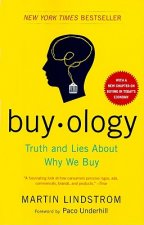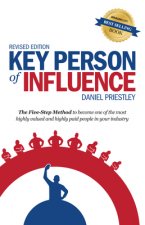
Kód: 01676349
Rise of Collaborative Consumption on the Example of Couchsurfing
Autor Markus Karmann
Scholarly Research Paper from the year 2011 in the subject Business economics - Marketing, Corporate Communication, CRM, Market Research, grade: 1,0, Northeastern University of Boston, language: English, abstract: The objective of ... celý popis
- Jazyk:
 Angličtina
Angličtina - Väzba: Brožovaná
- Počet strán: 28
Nakladateľ: Grin Verlag, 2012
- Viac informácií o knihe

Mohlo by sa vám tiež páčiť
-

How I Live Now
10.85 € -4 %
Darčekový poukaz: Radosť zaručená
- Darujte poukaz v ľubovoľnej hodnote, a my sa postaráme o zvyšok.
- Poukaz sa vzťahuje na všetky produkty v našej ponuke.
- Elektronický poukaz si vytlačíte z e-mailu a môžete ho ihneď darovať.
- Platnosť poukazu je 12 mesiacov od dátumu vystavenia.
Viac informácií o knihe Rise of Collaborative Consumption on the Example of Couchsurfing
Nákupom získate 51 bodov
 Anotácia knihy
Anotácia knihy
Scholarly Research Paper from the year 2011 in the subject Business economics - Marketing, Corporate Communication, CRM, Market Research, grade: 1,0, Northeastern University of Boston, language: English, abstract: The objective of this paper is to analyze the emergence and the characteristics of collaborative consumption. Moreover, this paper examines the causes and underlying motivations for using Couchsurfing as one particular form of collaborative consumption by focusing on consumers. Lastly, we will provide potential implications of this trend for commercial organizations.In recent years economic life has changed more radically than in the past century altogether. Consumers and firms are getting away from the typical capitalistic principle of buyers and sellers . The new economies are rather defined by users and suppliers . Ownership, which was the underlying principle of decades of capitalism is not desirable anymore as it is (..) considered outdated and out of place (..) (Rifkin 2000, p. 5). Nowadays, firms are outsourcing and leasing cars, electronics and even people. It is just not important to own things anymore, but simply to have access to resources. Product life-cycles are becoming shorter and shorter and especially electronic goods are almost outdated shortly after their release. Therefore, companies need to be flexible and react quickly. The principle of ownership can just not fulfil the requirements of an ever-changing and fast-paced economy (Rifkin 2000).While consumers are still more reluctant towards this trend, they are picking up on it. Car-sharing or bike-sharing, for example, is becoming more and more popular in order to (simply) save money and thus replace traditional ways of just buying goods. Furthermore, people are increasingly aware of their (negotiation) power. Groupon, for instance , is only able to offer all these blockbuster discounts because there is a huge mass of people behind (it) to negotiate big bargains. The rise of the internet and modern communication is an important building block of developing this kind of network economy. Without modern communication it is just impossible to coordinate a network economy and to identify suppliers, users and their needs (Rifkin 2000).This general trend of (either) sharing goods or getting access to it is called collaborative consumption .
 Parametre knihy
Parametre knihy
Zaradenie knihy Knihy po anglicky Economics, finance, business & management Business & management Sales & marketing
20.78 €
- Celý názov: Rise of Collaborative Consumption on the Example of Couchsurfing
- Autor: Markus Karmann
- Jazyk:
 Angličtina
Angličtina - Väzba: Brožovaná
- Počet strán: 28
- EAN: 9783656189190
- ISBN: 3656189196
- ID: 01676349
- Nakladateľ: Grin Verlag
- Hmotnosť: 68 g
- Rozmery: 254 × 178 × 2 mm
- Dátum vydania: 13. May 2012
Obľúbené z iného súdka
-

Zig Ziglar's Secrets of Closing the Sale
18.42 € -11 % -

Predictably Irrational, Revised
7.57 € -25 % -

The Challenger Sale
16.78 € -23 % -

Cashvertising
18.42 € -4 % -

Luxury Strategy
47.61 € -

Spin Selling
30.92 € -18 % -

Buyology
16.27 € -12 % -

How to Master the Art of Selling
18.01 € -23 % -

How to Sell Anything to Anybody
12.28 € -23 % -

1-Page Marketing Plan
14.94 € -23 % -

Unconscious Branding
19.75 € -8 % -

Building a StoryBrand
13.30 € -19 % -

How Brands Grow
36.65 € -

Brand Flip, The
33.27 € -19 % -

Permission Marketing
10.23 € -24 % -

Contagious: Why Things Catch on
16.99 € -17 % -

Brand Gap, The
29.38 € -

22 Immutable Laws Of Marketing
11.15 € -23 % -

Key Person of Influence
11.15 € -23 % -

Challenger Sale
26.92 € -14 % -

Ogilvy on Advertising
16.58 € -23 % -

ZAG
35.32 € -

Adweek Copywriting Handbook - The Ultimate Guide to Writing Powerful Advertising and Marketing Copy from One of America's Top Copywriters
24.06 € -18 % -

Scientific Advertising
10.54 € -15 % -

Marketing 4.0
28.56 € -

Challenger Customer
18.73 € -23 % -

Gap Selling
19.86 € -

Ultimate Marketing Plan
14.74 € -10 % -

Sell or Be Sold
21.19 € -19 % -

Secrets of Closing the Sale
16.58 € -23 % -

Scientific Advertising
17.81 € -

Sales Bible, New Edition
20.37 € -16 % -

Scientific Advertising
8.59 € -

Scientific Advertising
10.54 € -

Outcomes Over Output
14.02 € -2 % -

Positioning: The Battle for Your Mind
17.71 € -23 % -

D&AD. The Copy Book
22.01 € -23 % -

How To Become A Rainmaker
15.56 € -23 % -

It's Not How Good You Are, It's How Good You Want to Be
11.36 € -9 % -

New Strategic Selling
39.62 € -

Neuro Design
31.63 € -

Professional Services Marketing
26.82 € -19 % -

Designing Brand Identity - An Essential Guide for the Whole Branding Team 5e
44.54 € -19 % -

Scientific Advertising
7.67 € -

Inside the Tornado
14.43 € -23 % -

Powerful Phrases for Effective Customer Service: Over 700 Ready-to- Use Phrases and Scripts That Really Get Results
17.19 € -19 % -

Aesthetic Intelligence
25.18 € -19 % -

Public Relations
17.19 € -19 % -

Key Account Management - The Definitive Guide 3e
53.65 € -3 %
Osobný odber Bratislava a 2642 dalších
Copyright ©2008-24 najlacnejsie-knihy.sk Všetky práva vyhradenéSúkromieCookies



 21 miliónov titulov
21 miliónov titulov Vrátenie do mesiaca
Vrátenie do mesiaca 02/210 210 99 (8-15.30h)
02/210 210 99 (8-15.30h)